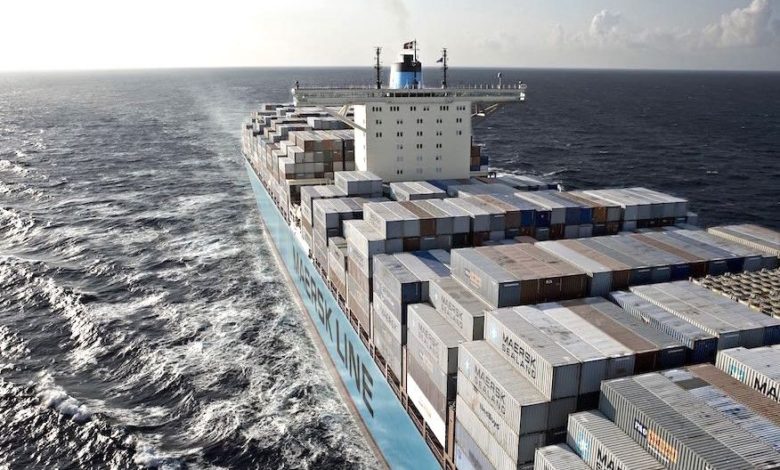Shippers lash emergency bunker surcharges

Leading shippers have hit out at the rush by struggling boxlines to implement emergency bunker surcharges.
After a series of weak first quarter results from the world’s top containerlines, many have introduced emergency bunker surcharges of anywhere from $60 to $90 per teu in the past few days, a move that has been lashed by customers.
Average operating margin for the eleven largest shipping lines that published results fell to -3.3% in the first quarter – the worst performance since Q3 of 2016, according to statistics from Alphaliner.
Chris Welsh, secretary general of the Global Shippers’ Forum (GSF), said in a statement that the bunker tactic amounted to collusion. A decade since the abolition of the liner conference system in October 2008, the container industry is still using conference-style pricing methods to impose surcharges on its customers, Welsh maintained. GSF said it is adamant that few transport operators in other transport sectors would risk imposing such short-notice emergency surcharges because of the likely strong reaction from customers, including the loss of business.
“Container ship operators need to fess-up by taking responsibility and greater control of their costs,” Welsh said, “rather than announcing vaguely explained short-notice unrecoverable surcharge costs on customers.
“It is incumbent on container carriers to provide their customers with full transparency regarding bunker surcharge costs, and to explain why an emergency surcharge is warranted on top of existing bunker surcharge mechanisms. Shippers will also want to know what steps have been taken to mitigate the impacts of rising fuel prices, including the impacts of fuel hedging arrangements which are designed to manage the risks associated with the single largest cost component of operating container ships.
“The imposition of emergency surcharges has no place in a modern liner shipping market where costs and prices should be mutually agreed between customers and suppliers, preferably in mutually agreed service contracts,” he continued.
Writing on LinkedIn, Bjorn Vang Jensen, a former Maersk man who heads up logistics for Swedish multinational home appliance manufacturer, Electrolux, said agreements he, and many other BCOs, had signed recently with carriers include specific clauses around bunker prices which get reviewed on a quarterly basis.
“[W]e expect that the carriers will respect those, as we of course intend to. As, if, and when. And not one minute before,” he warned.
Jensen then went to compare these bunker surcharges with the problems manufacturers are also faced with daily with fluctuating raw material prices.
“Prices of steel, chemicals and freight have risen substantially in our industry over the last 12 months, and in some cases even dramatically, as anyone who reads our published financial reports will know,” he wrote, pointing out that manufacturers had no Steel Adjustment Factors, nor a Chemicals Arbitrary or a Freight Increase Surcharge in contracts with customers.
Jensen’s statements, however, are slightly misleading as a glance at Electrolux’s most recent annual report states: “In several of the Group’s markets, Electrolux has also announced price increases as a result of headwinds from raw material costs.”
Lars Jensen, a partner at SeaIntelligence Consulting and regular Splash contributor, chipped into the LinkedIn debate suggesting new platforms could finally kill off bunker agreements.
“Once we get to a point of contracts being truly enforceable from both sides, through for example NYSHEX, then there would be no logical need for BAF structures on fixed contracts at all as the oil price exposure could be settled by a financial hedge,” Jensen wrote, referring to the fast growing New York Shipping Exchange in which he is a seed investor.
John McCauley, vice president of transport and logistics at Cargill, also entered the discussion on LinkedIn with some very pointed words for carriers to heed.
“It is with disappointment we see that some carriers are seeking to take action outside this process to recover increased bunker costs,” McCauley stated, continuing: “It may be they are wise enough to differentiate between reliable and long term contract shippers and those choosing the more rumble tumble spot market. It may also be they will consider those companies that have honoured long established BAF agreements exempt from these surcharges. However, the poorly managed communication resulting in incomplete and inconclusive assumptions by their clients, leads me to conclude that the carriers expect all shippers to pay. I hope I am wrong and that wise heads prevail. History of pricing in this industry does not give me much ground for optimism.”

It is fine of GSC to question the EBS. It is dramatic to (continue) suggest “collusion”. Then make a case to the EU if you seriously believe in this.